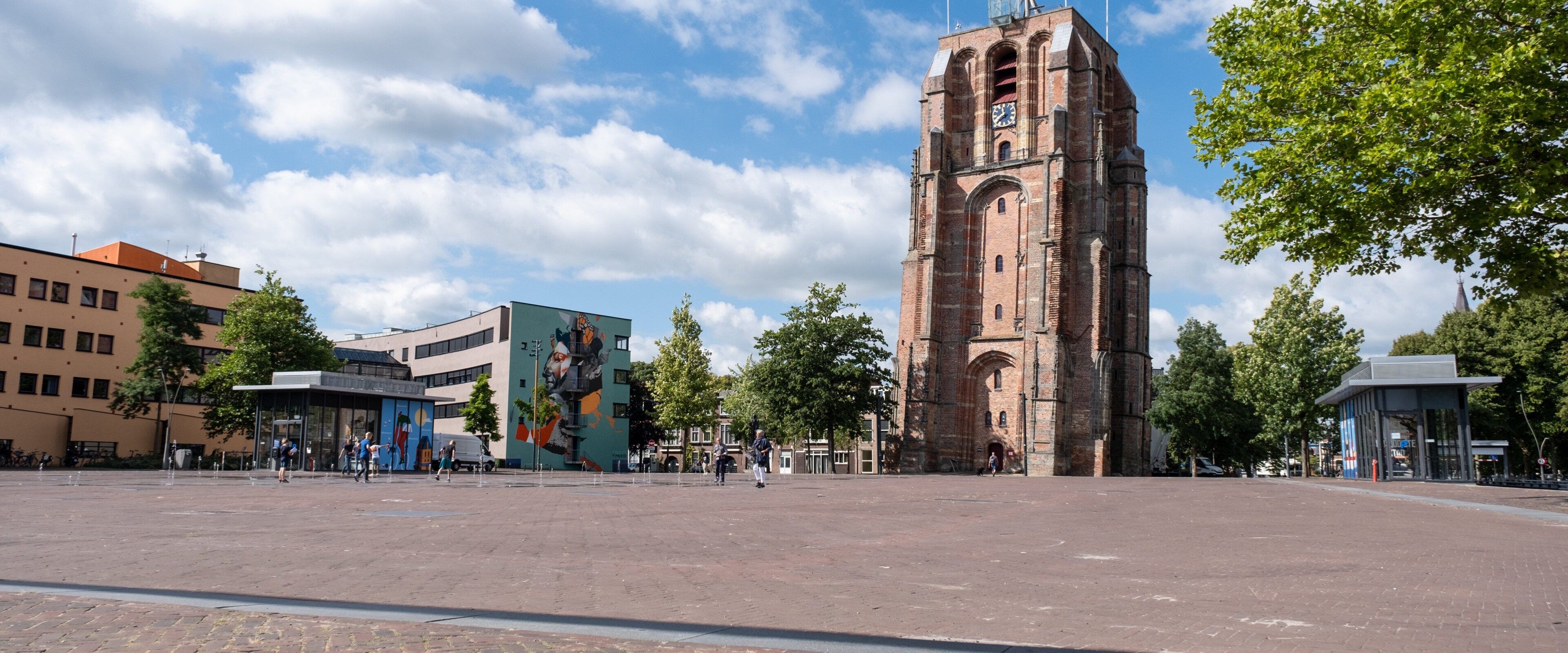File a report on misuse of welfare benefits or care
Is someone providing incorrect information? Is someone withholding important information? Is someone not keeping to the rules? You can file an (anonymous) report if you suspect that someone is abusing social assistance benefits or care (PGB, Wmo, Youth Care).
Unwilling or unable to report online?
In that case, file your report (can be done anonymously) via:
- Download and complete the reporting form(PDF, 1.34 MB). Send the form to the City of Leeuwarden. You can also hand it in at the Town Hall.
- By telephone via the Reporting Point: 058-2334005. Open from Monday to Thursday from 08.30 am to 3.30 pm and Fridays from 8.30 am to 12.30 pm.
- The email address is fraudemeldpunt@leeuwarden.nl.
Examples of abuses
Deliberately concealing information in order to obtain or retain a benefit, WMO provision or Youth Assistance is an abuse. For example:
- Registering at an address where you do not live.
- Cohabiting without reporting this.
- Not needing the support (income or care) that is received.
- Declaring hours for support under the Wmo or Youth Act that are not provided.
- Failure to report (extra) income.
- Failure to report extra assets. This also applies to assets abroad.
Are you receiving benefits from us? Pass on any changes!
You are obliged to notify us of changes within 7 days. We call that the Duty of Information. Are you providing no information or incorrect information? Then that may be abuse.
Has your personal situation or income changed? Or are you going abroad for more than 4 weeks? You must report this within 7 days.
Home visits
Municipal staff can come to your home to check whether your details are correct. They assess whether the actual situation is the same as the information you have provided.
Can I refuse a home visit?
Yes you can. However this can have consequences for any benefits or support you receive.
Are home visits announced in advance?
Not always. We usually notify you in advance that we are coming.
We can also visit you without prior notification. We do this if this is necessary to correctly determine your situation.
How is my privacy protected?
Staff present a local authority pass. That way, you know they really are from the local authority. They may also ask you to show proof of identity. This can be a driving licence, passport or identity card. For your privacy, the employees ask if they can come in. That avoids having to hold the conversation on the doorstep. They will tell you why there are there and what they want to do.
Am I obliged to let the officials in?
They will first ask for your permission. You give this permission by signing the form ‘Toestemming Huisbezoek’ (Consent for a Home Visit). The officials will have this form with them. You can refuse the home visit. Your right to benefits or need for support may then not be determined. This may mean that your application will be rejected. Or your benefit or support will be stopped or reduced.
This will be explained to you during the home visit.
What happens during the home visit?
You must always be present at a home visit. The officials will ask your permission for everything they are going to do or touch. The visit does not normally take longer than an hour.
If the officials consider it necessary, they can ask you:
- if they can view other rooms in the home.
- to open cupboards or drawers and see the contents.
- to view your administrative records and mail.
What happens after a home visit?
We will include the results of the home visit in the assessment of your (application for) social assistance benefit or support. You will receive the outcome of this assessment.
Questions or want to know more?
Contact the City of Leeuwarden.
Unwilling or unable to report online?
In that case, file your report (can be done anonymously) via:
- Download and complete the reporting form(PDF, 1.34 MB). Send the form to the City of Leeuwarden. You can also hand it in at the Town Hall.
- By telephone via the Reporting Point: 058-2334005. Open from Monday to Thursday from 08.30 am to 3.30 pm and Fridays from 8.30 am to 12.30 pm.
- The email address is fraudemeldpunt@leeuwarden.nl.
Examples of abuses
Deliberately concealing information in order to obtain or retain a benefit, WMO provision or Youth Assistance is an abuse. For example:
- Registering at an address where you do not live.
- Cohabiting without reporting this.
- Not needing the support (income or care) that is received.
- Declaring hours for support under the Wmo or Youth Act that are not provided.
- Failure to report (extra) income.
- Failure to report extra assets. This also applies to assets abroad.
Are you receiving benefits from us? Pass on any changes!
You are obliged to notify us of changes within 7 days. We call that the Duty of Information. Are you providing no information or incorrect information? Then that may be abuse.
Has your personal situation or income changed? Or are you going abroad for more than 4 weeks? You must report this within 7 days.
Home visits
Municipal staff can come to your home to check whether your details are correct. They assess whether the actual situation is the same as the information you have provided.
Can I refuse a home visit?
Yes you can. However this can have consequences for any benefits or support you receive.
Are home visits announced in advance?
Not always. We usually notify you in advance that we are coming.
We can also visit you without prior notification. We do this if this is necessary to correctly determine your situation.
How is my privacy protected?
Staff present a local authority pass. That way, you know they really are from the local authority. They may also ask you to show proof of identity. This can be a driving licence, passport or identity card. For your privacy, the employees ask if they can come in. That avoids having to hold the conversation on the doorstep. They will tell you why there are there and what they want to do.
Am I obliged to let the officials in?
They will first ask for your permission. You give this permission by signing the form ‘Toestemming Huisbezoek’ (Consent for a Home Visit). The officials will have this form with them. You can refuse the home visit. Your right to benefits or need for support may then not be determined. This may mean that your application will be rejected. Or your benefit or support will be stopped or reduced.
This will be explained to you during the home visit.
What happens during the home visit?
You must always be present at a home visit. The officials will ask your permission for everything they are going to do or touch. The visit does not normally take longer than an hour.
If the officials consider it necessary, they can ask you:
- if they can view other rooms in the home.
- to open cupboards or drawers and see the contents.
- to view your administrative records and mail.
What happens after a home visit?
We will include the results of the home visit in the assessment of your (application for) social assistance benefit or support. You will receive the outcome of this assessment.
Questions or want to know more?
Contact the City of Leeuwarden.


